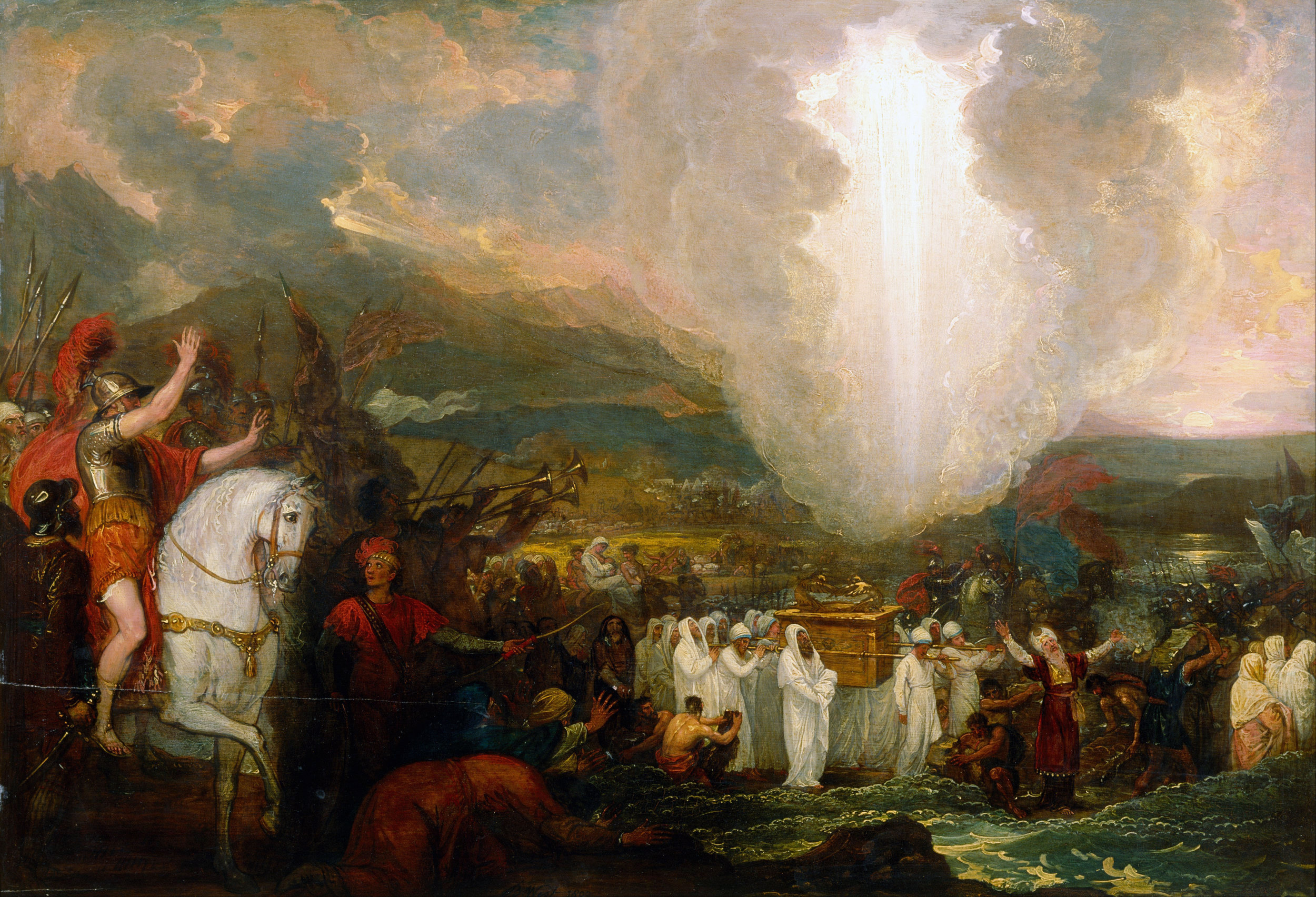Holy Fear
/Joshua passing the River Jordan with the Ark of the Covenant by Benjamin West, 1800
In Christian Bible classes we sometimes hear people discuss the meaning of the biblical admonition, predominantly found in the Old Testament, to “fear God.” Does not the New Testament present God as our loving Father, whom we are privileged to address familiarly as “Papa”? But the Old Testament clearly sees fearing God in a different light. The “Preacher” of Ecclesiastes, for example, sums up his treatise by asserting that we are to “fear God and keep his commandments, for this is the whole duty of man. For God will bring every deed into judgment, with every secret thing, whether good or evil” (Eccl. 12:13-14 [ESV]). But in the New Testament, disciples are frequently told not to fear, and in I John 4:18 we have a radical negation of fear: “There is no fear in love, but perfect love casts out fear. For fear has to do with punishment, and whoever fears has not been perfected in love.” How do we get from the O.T. fear based on God’s judgment to the N.T. saying that Christians (the new Israel) should have no fear of judgment? The fear of God still has its place in the N.T., but it is a fear embedded in the fact that Jesus Christ has bridged the gap for us between the austere fear of God and the joyful trembling that comes from being in the Presence of an awesome, loving, and gentle Father who accepts us as brothers and sisters of Christ Jesus.
Those under the Old Covenant were acutely aware that to be in God’s Presence was dangerous because of His perfect holiness and His fearsome judgment on human sin. Three passages from chapters 6 and 8 of Isaiah and chapter 33 of Exodus illustrate this reaction, even in men who were being called by God. In Isaiah’s vision of God “high and lifted up” in all His glory and holiness; the prophet’s immediate reaction is fear that he is going to die because he has “seen the King, the Lord of Hosts” (Is. 6:5). Even though he is a prophet of God, he is terrifyingly aware of his sinfulness, and in order for his life to be preserved and for the conversation with God to continue, Isaiah has to be purified (depicted figuratively by the application of a burning coal from the Temple altar to his lips), so that his “guilt is taken away, and [his] sin atoned for” (v.7). Moses has a similar experience (Ex. 33:18-23) when he asks God, “Show me your glory” (v. 18); whereupon God allows him only a glimpse of His back, and even that could be granted only with God’s protective hand covering Moses, for “man shall not see me and live.” Human beings do well to fear the Presence of God, for the fiery holiness of that Presence will consume them unless God Himself offers protection.
The transition between the O.T. fear of God’s judgment and the N.T. casting out of fear by Love is provided by the visitation upon the sinless Lamb of God of all the wrath of the Father deserved by rebellious mankind. With God’s judgment satisfied, we can be empowered to serve and obey Him without the fear engendered by our sinfulness. As Paul expresses it, when we accepted the liberating blood of Christ, we “did not receive the spirit of slavery to fall back into fear, but . . . received the Spirit of adoption as sons, by whom we cry, "Abba! Father!" Thereby we have the liberty to “work out [our] own salvation with fear and trembling, for it is God who works in [us], both to will and to work for his good pleasure” (Phil. 2:12-13). As Paul points out in Gal. 3, the final deliverance of mankind from sin was not to be accomplished through obedience to the Law, as necessary as that obedience was. As he concludes in that chapter, “the law was our guardian until Christ came, in order that we might be justified by faith. But now that faith has come, we are no longer under a guardian, for in Christ Jesus you are all sons of God, through faith” (Gal. 3:24-26). God’s love, fully manifested toward humankind by the sacrifice of His Son, is the instrument for transmuting human fear into effective fear of God.
And so we come back to the statement in I John that “perfect love casts out fear. For fear has to do with punishment, and whoever fears has not been perfected in love” (I Jn. 4:18). What a glorious privilege is granted to us who live under the New Covenant, that we may glory in standing before God without fear of punishment for our sins. Although we no longer tremble in physical terror as Moses and the people did when they encountered the fiery Presence of God at Mt. Sinai, we are nevertheless admonished to approach Him in Mt. Zion, the Heavenly Jerusalem, “with holy fear and awe, for our God is a consuming fire” (Heb.12:28-29, NLT). We still need the protective covering of the blood of Jesus to keep from being consumed by the Fire of God’s judgment. Thus we are able under the New Covenant to fear God perfectly and joyfully.
Dr. Elton Higgs was a faculty member in the English department of the University of Michigan-Dearborn from 1965-2001. Having retired from UM-D as Prof. of English in 2001, he now lives with his wife and adult daughter in Jackson, MI.. He has published scholarly articles on Chaucer, Langland, the Pearl Poet, Shakespeare, and Milton. His self-published Collected Poems is online at Lulu.com. He also published a couple dozen short articles in religious journals. (Ed.: Dr. Higgs was the most important mentor during undergrad for the creator of this website, and his influence was inestimable; it's thrilling to welcome this dear friend onboard.)










